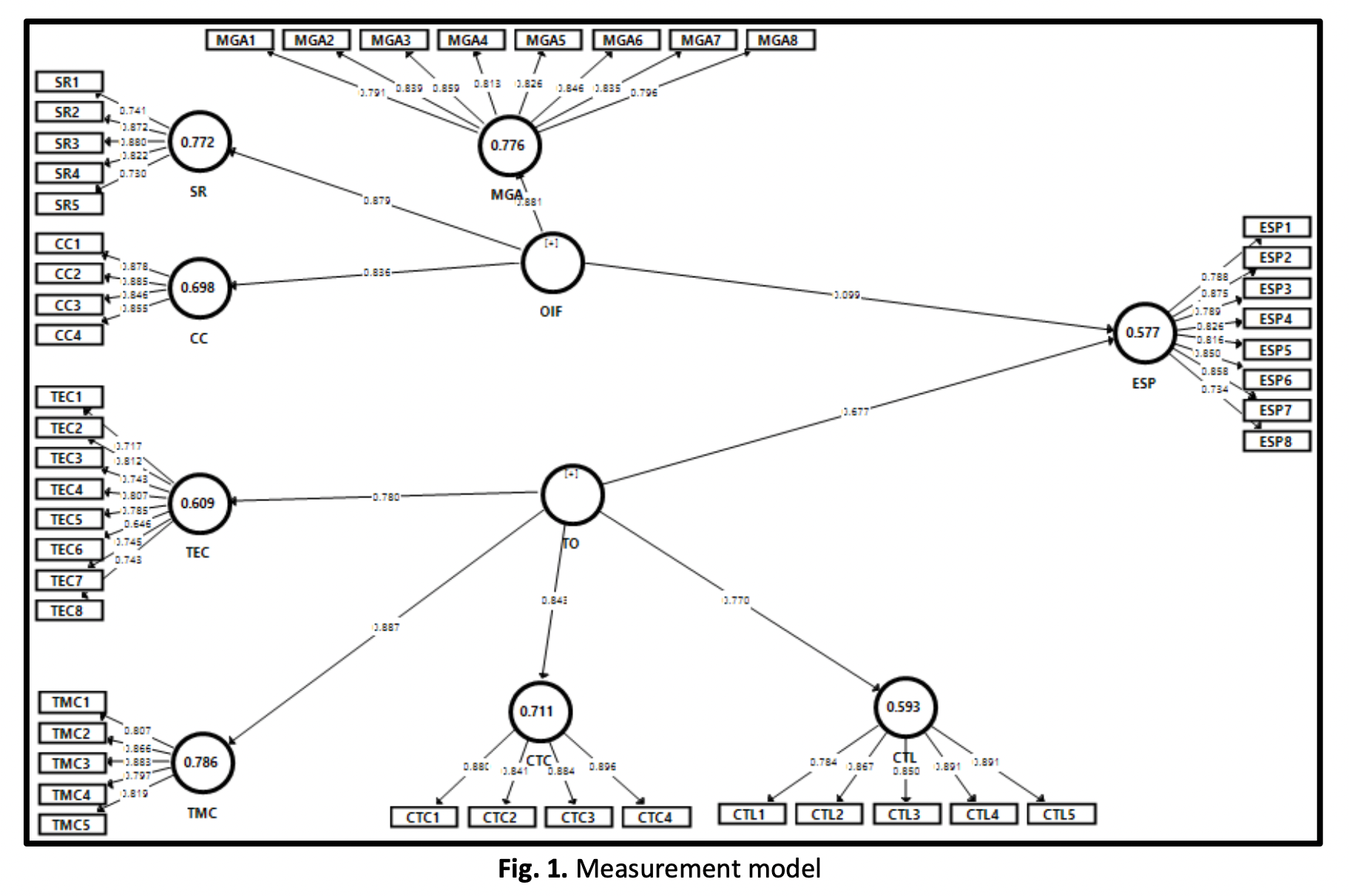Validating the Effects of Organizational Internal Factors and Technology Orientation on Environmental Sustainability Performance of Malaysian Construction Firms
DOI:
https://doi.org/10.37934/araset.30.3.150167Keywords:
Environmental Sustainability Performance (ESP), organizational internal factors, technology orientation, coercive pressure, affective commitment, Partial Least Squares – Structural Equation Modeling (PLS-SEM)Abstract
The essence of emphasizing the importance of environmental sustainability among construction firms is to lessen the effects of construction activities or projects on the environment and make the construction activities more sustainably economically and friendly to the environment. This significant deliberation has stimulated various research interests by construction firms, owing to the damaging effects of construction activities such as various forms of environmental pollution, resource depletion, and biodiversity loss on a global scale. Using the Partial Least Squares- Structural Equation Modeling (PLS-SEM) approach, this study validates the environmental sustainability performance (ESP) as a construct from the perspectives of 186 construction firms within Peninsular Malaysia. An online cross-sectional survey was conducted where data was gathered from G7 construction firms through a well-structured questionnaire. Findings from this study revealed that organizational internal factors (Managerial attitudes, social responsibility, and company culture), and technology orientation have significant effects on the environmental sustainability performance (ESP) of Malaysian construction firms.





























